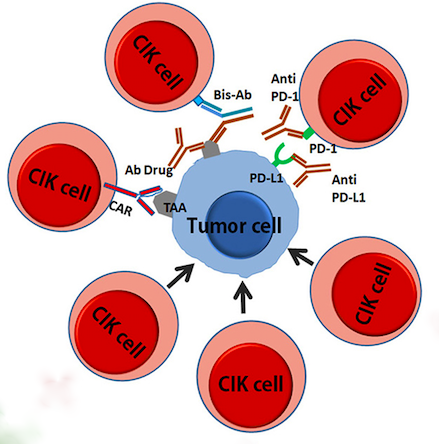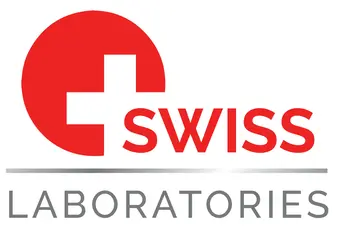- Home
- Cancer Immunotherapy
- Cytokine Induced Cells
Cytokine Induced Cells
Cytokine-induced killer (CIK) cells are a cell population that was first discovered in the 1990s and can be generated from lymphocytes co-cultured with an anti-CD3 antibody and many other cytokines in vitro. Numerous studies have demonstrated that CIK cells exhibit active proliferation and potent antitumor cytotoxicity against tumor cells in vitro and in vivo.
CIK cellular immunotherapy could be a curative strategy for cancer. Abundant clinical trials on this therapeutic regimen have been published in the past two decades, confirming its safety and feasibility in cancer patients.
Safety is a great advantage of CIK cells in patients with malignant diseases. In recent years, an increasing number of animal studies have indicated that a regimen involving the adoptive infusion of CIK cells confers considerable antitumor effect without severe adverse events in animals with malignancies.
Clinical trials have indicated that the adoptive infusion of CIK cells is feasible for patients with cancer. In 206 patients with various hematologic malignancies who had recently received autologous or allogeneic CIK cells and were enrolled in 17 clinical trials. More than 40% of the patients attained overall disease control (complete remission in 58 patients, partial remission in 15 patients, and stable disease in 11 patients) after the infusion of CIK cells.
Due to their easy availability from human blood and potent antitumor activity, CIK cells has emerged as a promising immunotherapy approach in oncology and may gain major importance on the prognosis of cancer. To summarize the above findings, CIK cell-based is a cancer treatment that can be used in some cancers with unclear tumor target genes, and repeated infusions of CIK cells or CIK cell infusion in combination with other therapeutic regimens may achieve unexpected clinical effects.

